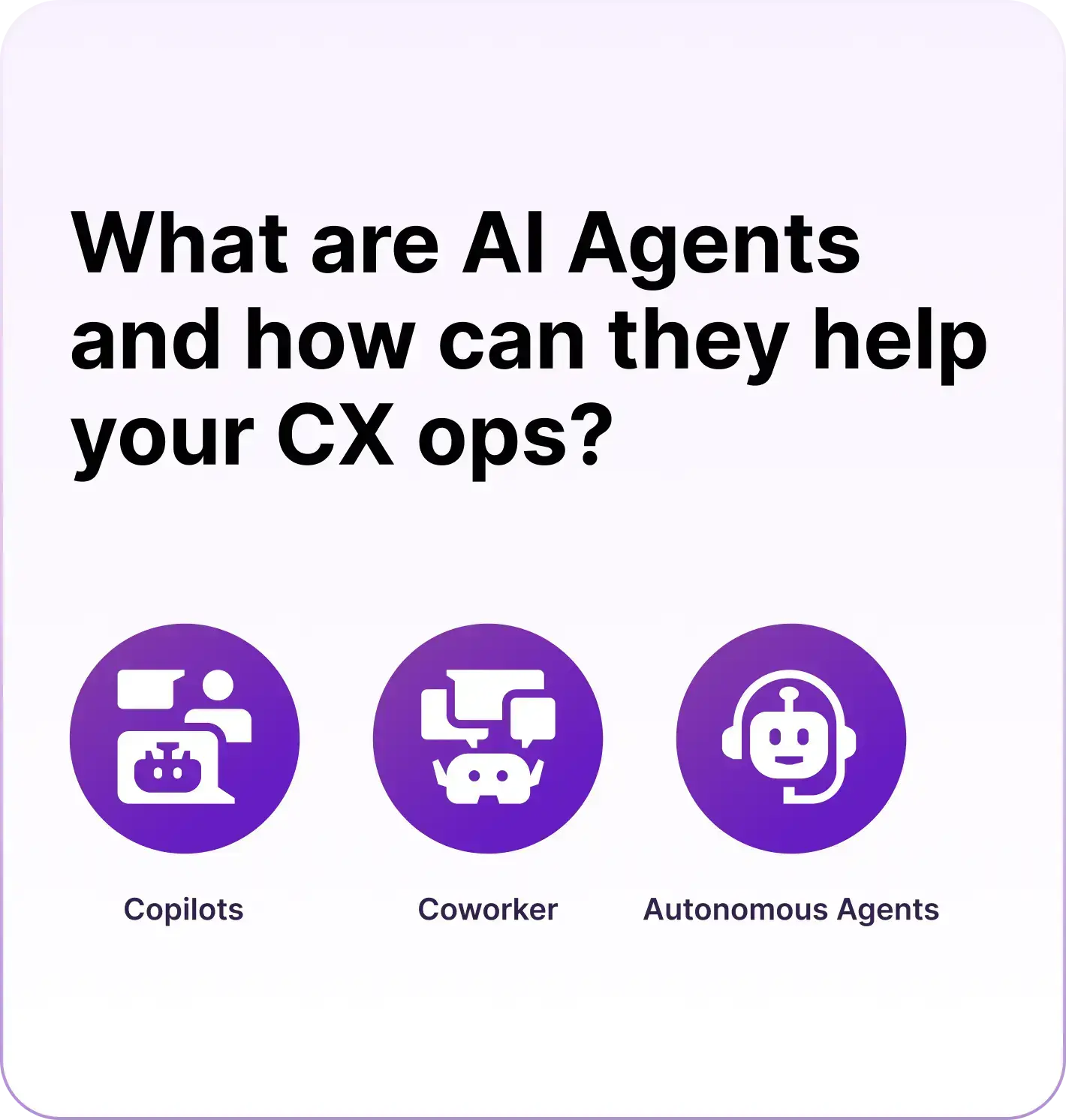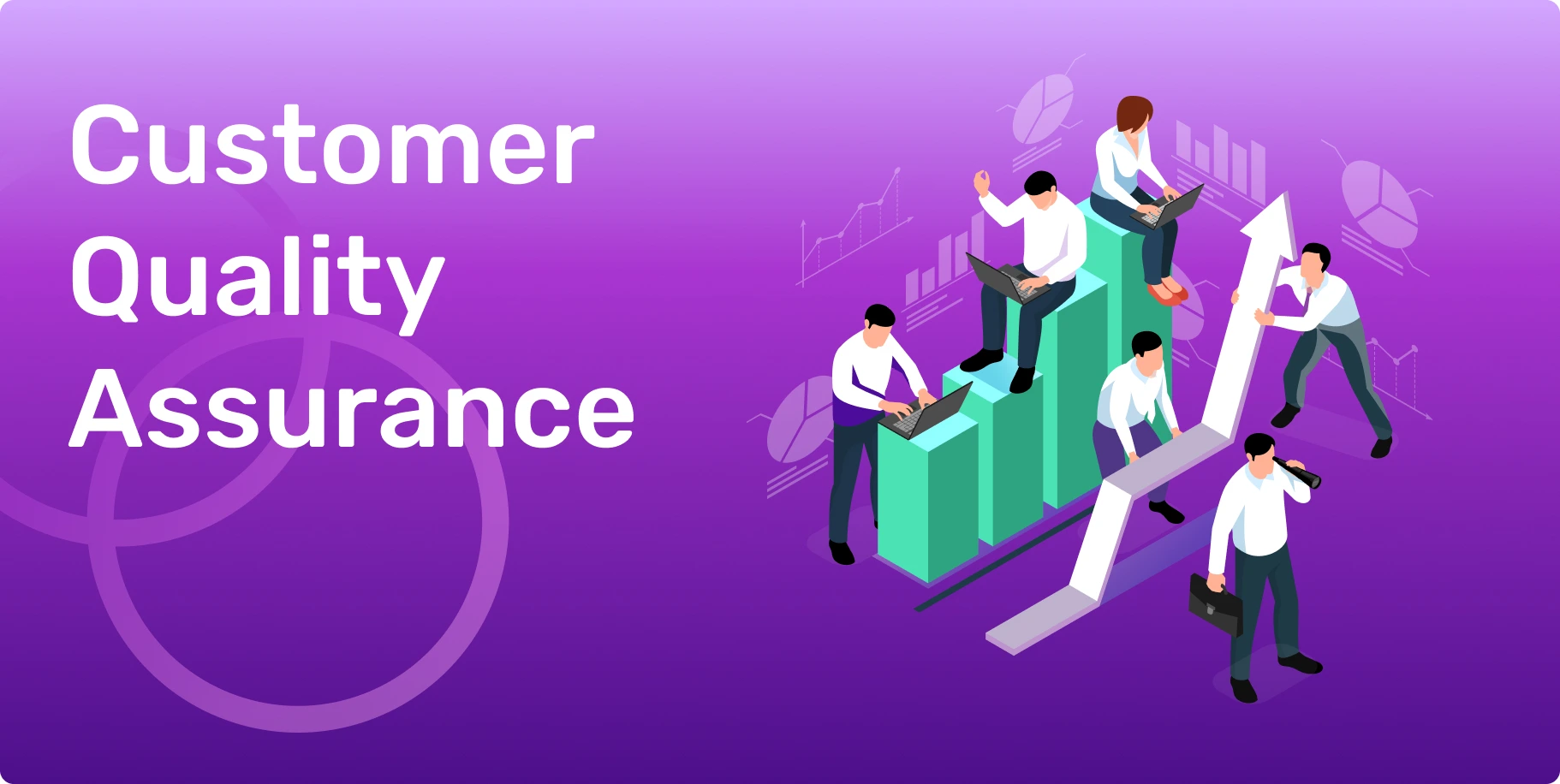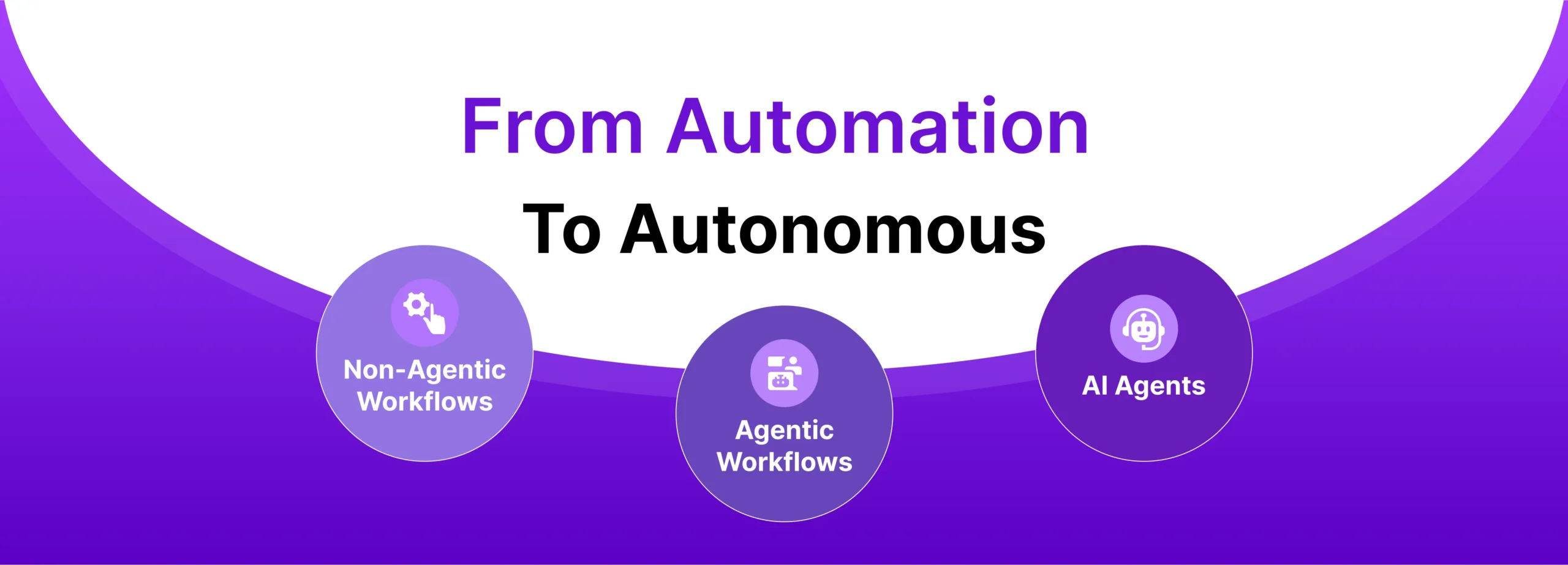Quality. At first glance, we may recognize quality as a synonym for measurement. But by textbook definition, quality is defined as, “the standard of something as measured against other things of a similar kind; the degree of excellence of something.”
When it comes to customer satisfaction, excellent quality support is every business’s goal. It’s no secret that happy customers will refer more customers while disgruntled, frustrated ones churn and share negative feedback with their peers. With an ongoing focus on net recurring revenue and customer loyalty, measuring quality support and ensuring excellence has become a critical function of CX.
With or without a QA initiative, you likely have specific definitions around what excellent customer service looks like when practiced.
-Greeting customers with the right tone
-Ensuring that an Agent’s writing and correspondence uses proper grammar, or
-Providing appropriate troubleshooting tips
But are your excellent standards being met and exceeded consistently across all of your agents? After all, people are people. Mistakes are made but it’s how you correct them and prevent them from occurring again that makes all the world of difference for your customer’s satisfaction.
Are your excellent standards being met across Generative AI-driven bots that try to mimic human responses?
These are the questions many Support leaders are confronted with for good reason. Recent data from Gartner suggests that 61% of customers have a probability of staying with a company when provided a low-effort resolution and that figure jumps up to 82% if the customers’ support interactions include value enhancement.

Auto QA, or automated quality assurance, has now taken manual QAs place.
What is Auto QA for customer support?
Auto QA is an automated, AI-driven assessment of customer support tickets. It ensures 100% coverage across multiple interaction types (chats, conversation, voice) and languages, providing an impartial, holistic overview of customer conversations and supporting quality measurement.
One of the biggest advantages of Auto QA is its ability to help you manage large ticket volumes with increased efficiency while also scoring and providing immediate real-time insights to you and your team. Again, manual QA can only go so far–to the tune of 3% to 10% of tickets on average.
Auto QA, which also incorporates grading against rubrics, is like having a supercharged teaching assistant–one that can help you monitor all of your data and grading with much better coverage and context. Auto QA can grade agents and chatbots, automatically identify common errors, and provide feedback to agents as well. It enables you to save time and ensure all your agents receive specific context focused on the support they need to improve.
For what its worth, TheLoops provides 40 OOTB rubrics to choose from, helping managers get unbiased quantitative and qualitative scores, supporting 27 different languages.
This latest incarnation of customer support QA goes beyond traditional manual processes, employing AI and machine learning for a nuanced evaluation of customer interactions. It’s not just an upgrade; it’s a strategic necessity for businesses committed to seamless, excellent service.
In this blog, we start with the historical evolution of QA for customer support then move into the technology powering Auto QA and its tangible benefits in real-world scenarios. Let’s explore how AI for customer support QA shapes the future of customer service forever.
Understanding the Evolution of QA For Support and Beyond
The evolution of Quality Assurance (QA) traces its roots back to medieval times, built on manual auditing methodologies. Initially, it used to be centered on scrutinizing processes to abide by standards. QA primarily focused on ensuring compliance and minimizing errors.
But QA has undergone an identity shift since.
The narrative changed with the rising significance of customer experience. QA transformed into a customer-centric discipline, recognizing the pivotal role of customer satisfaction in overall business success.
What were the driving forces towards automation?
Several factors propelled QA towards embracing automation. But the most important were:
- The increasing volume.
- The complexity of customer interactions.
These factors made a more scalable and efficient approach necessary.
Automated processes became the go-to mechanism to deal with the demand for real-time insights and rapid response times.
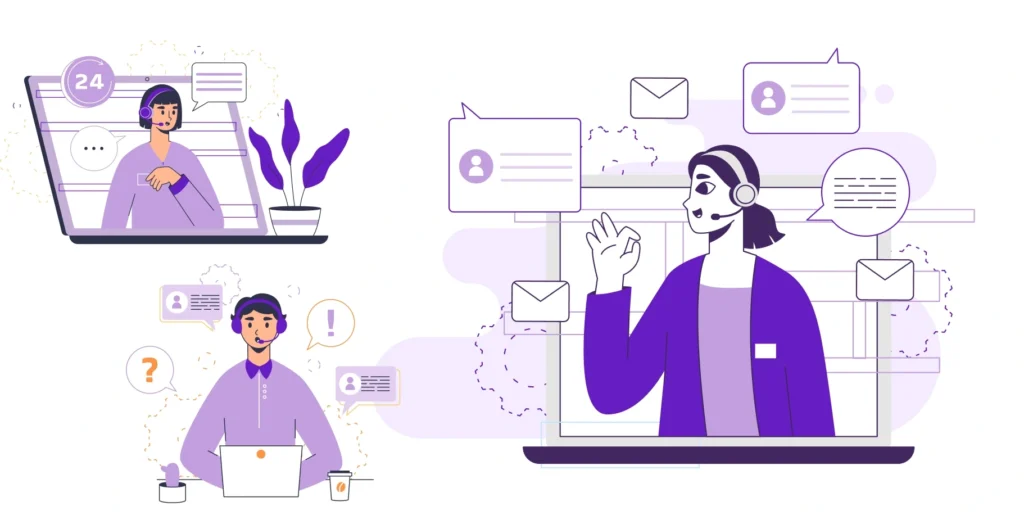
The integration of advanced technologies, such as artificial intelligence (AI) and machine learning, emerged as an influence. These innovations not only automate repetitive tasks but also elevate QA to a proactive and predictive function, anticipating customer needs and pain points.
Unveiling the Essence of Auto QA
Auto QA represents a revolutionary departure from traditional QA methods, breaking the limits of manual processes.
This new approach brings efficiency and precision. It replaces the labor-intensive nature of manual auditing with automated processes, offering a systematic and thorough evaluation of customer interactions. Speed, accuracy, and scalability are benchmarks of Auto QA. This ensures that no aspect of the customer service goes unnoticed.
CX expert and podcast host, Devon Harris, had this to say about the importance of quality assurance.
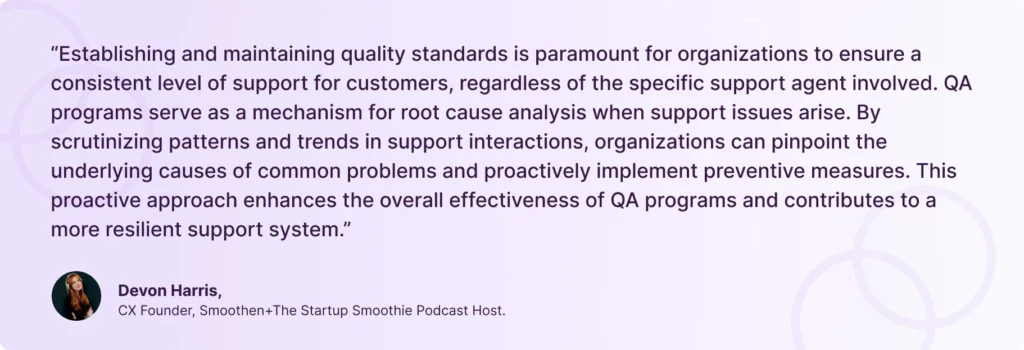
At the heart of Auto QA lies a sophisticated technological infrastructure.
Artificial Intelligence (AI) and machine learning technologies form the backbone, enabling the system to comprehend, analyze, and derive meaningful insights, such as sentiment and empathy, from vast datasets. At TheLoops, we extract 35+ sentiment signals from customer interactions highlighting the impact of agent responses.
These technologies empower Auto QA to evolve, adapt, and continuously enhance its capabilities, ensuring it remains at the forefront of customer service excellence.
By introducing these advanced technologies, Auto QA not only elevates the efficiency of quality assessments but also augments the overall customer experience.
The Imperative for Auto QA in Modern Customer Service
We have to acknowledge the elephant in the room: the challenges of manual quality assurance (QA) methods. First, let’s look at the two major issues:
–Randomness in conversation selection
The first challenge lies in the randomness associated with conversation selection during manual QA. Human evaluators may unintentionally choose conversations that do not represent the broader spectrum of customer interactions, leading to incomplete assessments.
–Reliance on subjective scoring
The reliance on subjective scoring in manual QA introduces another layer of difficulty.
Human evaluators may interpret and score interactions differently based on individual perspectives, which can result in inconsistent and potentially biased evaluations. This subjectivity not only lowers the reliability of QA results but also introduces the risk of overlooking critical issues.
These challenges, in turn, have a detrimental impact on both customer experiences and agent performance.
Inconsistencies in conversation selection and subjective scoring can lead to an incorrect understanding of the overall customer service quality. Customers may receive varying levels of service, affecting satisfaction and loyalty.
Also, agents may struggle with unclear performance expectations, hindering professional development.
Auto QA is a transformative solution to address these limitations.
By employing automated processes, Auto QA ensures complete and unbiased oversight of customer interactions. It systematically evaluates datasets, removing the randomness from manual conversation selection.
The result?
A more accurate representation of the overall service quality while identifying areas for improvement with precision.
Auto QA also replaces subjective scoring with standardized metrics, ensuring a consistent and fair assessment across all interactions. At TheLoops the interactions are scored for adherence, tone, and efficiency, creating the Loops Quality Score.
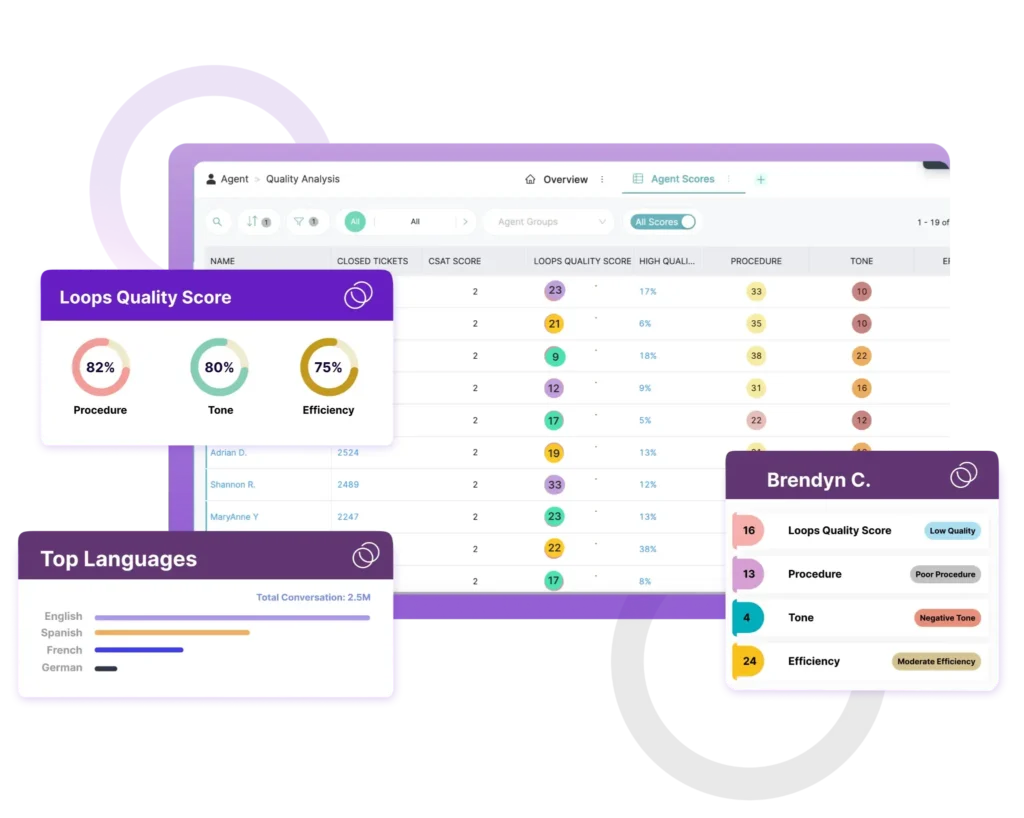
This objectivity enhances the reliability of QA outcomes and provides a clear benchmark for agent performance. Agents benefit from specific and constructive feedback, allowing targeted improvements and building a more consistent, high-quality customer service experience.
The integration of Auto QA promises enhanced efficiency and excellence, paving the way for a future where customer interactions are consistently outstanding.
